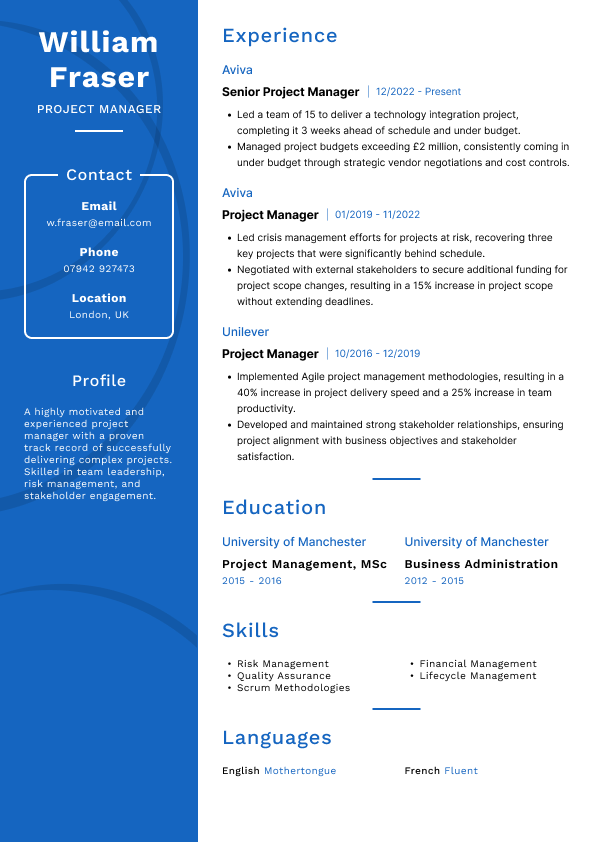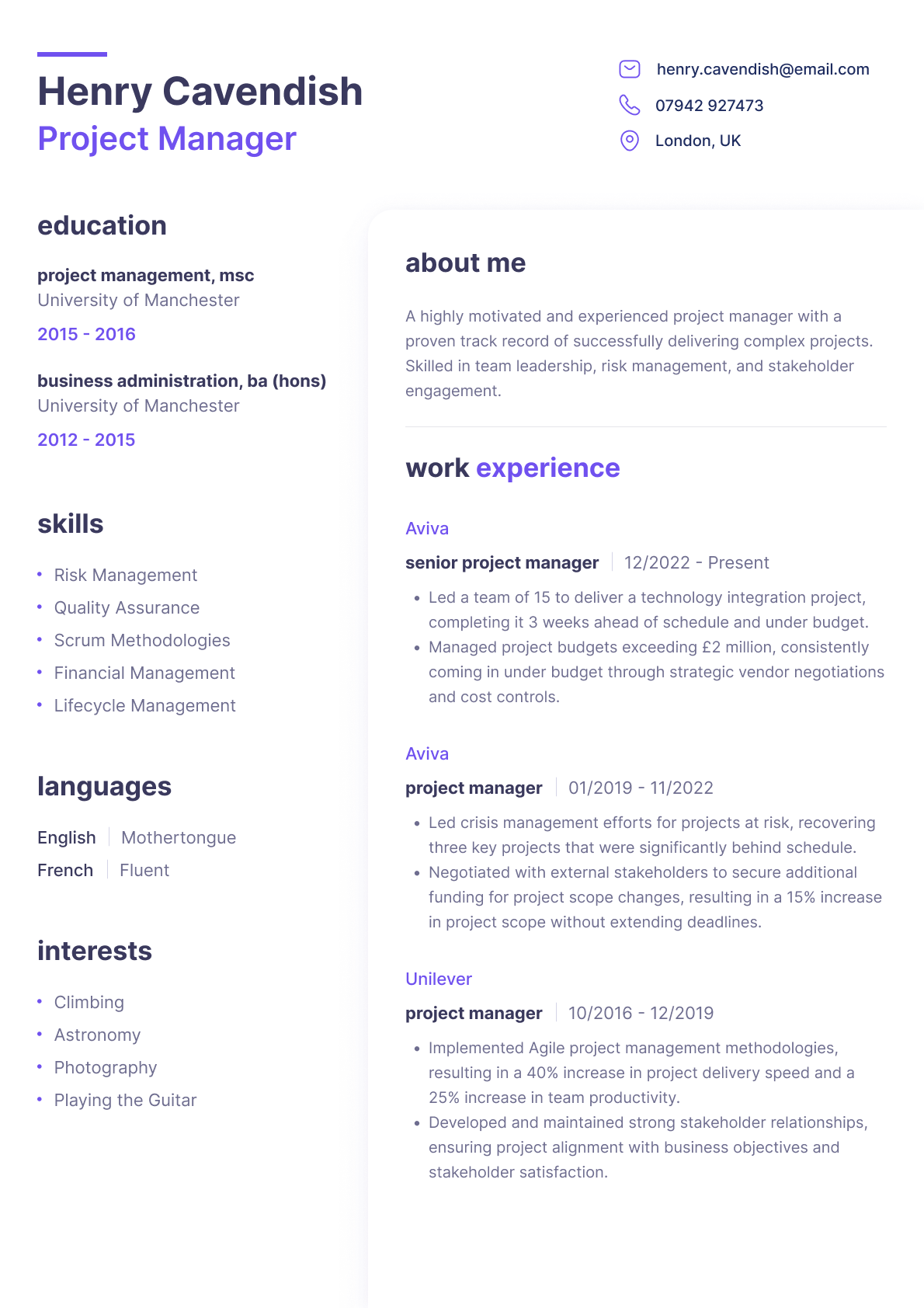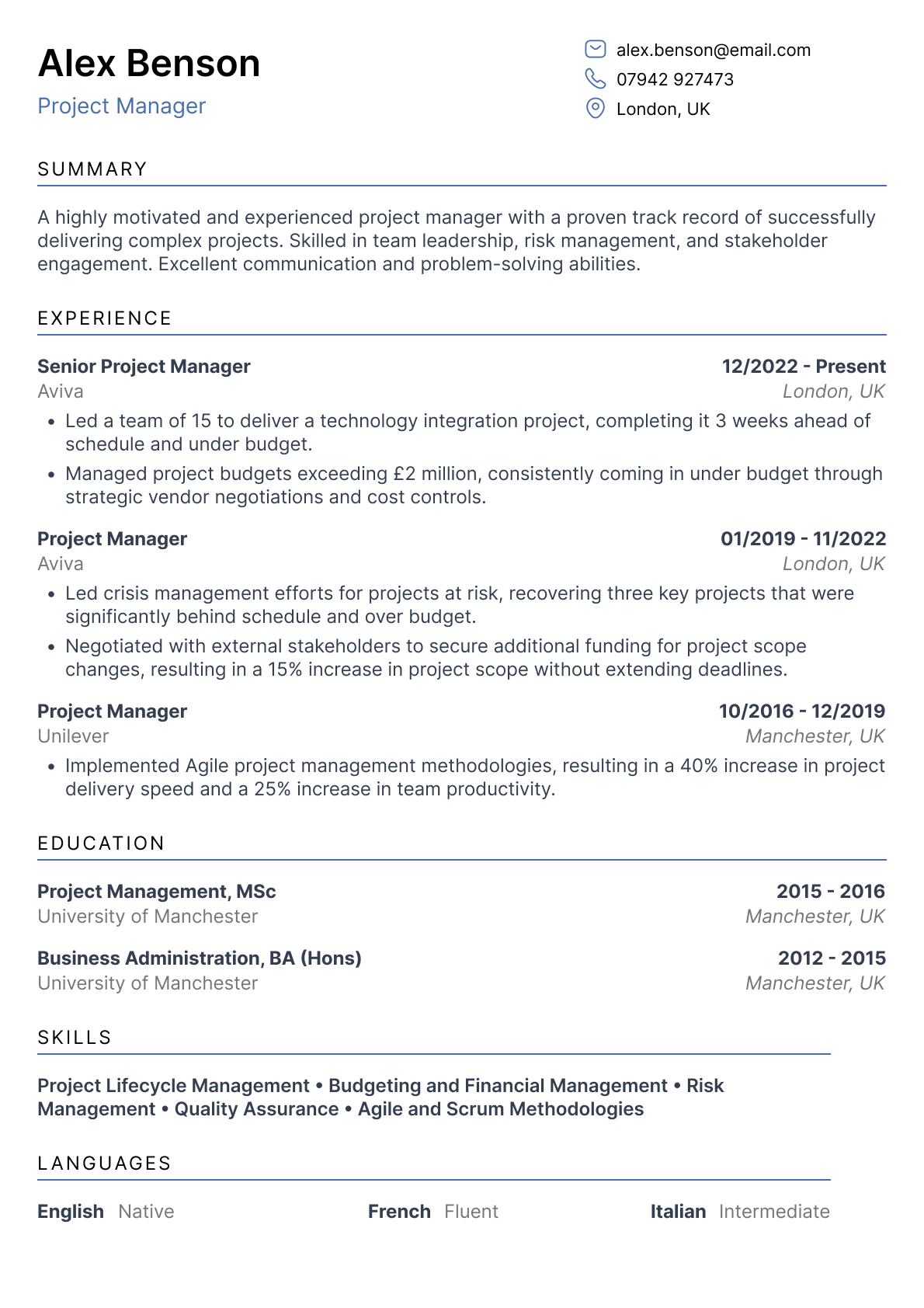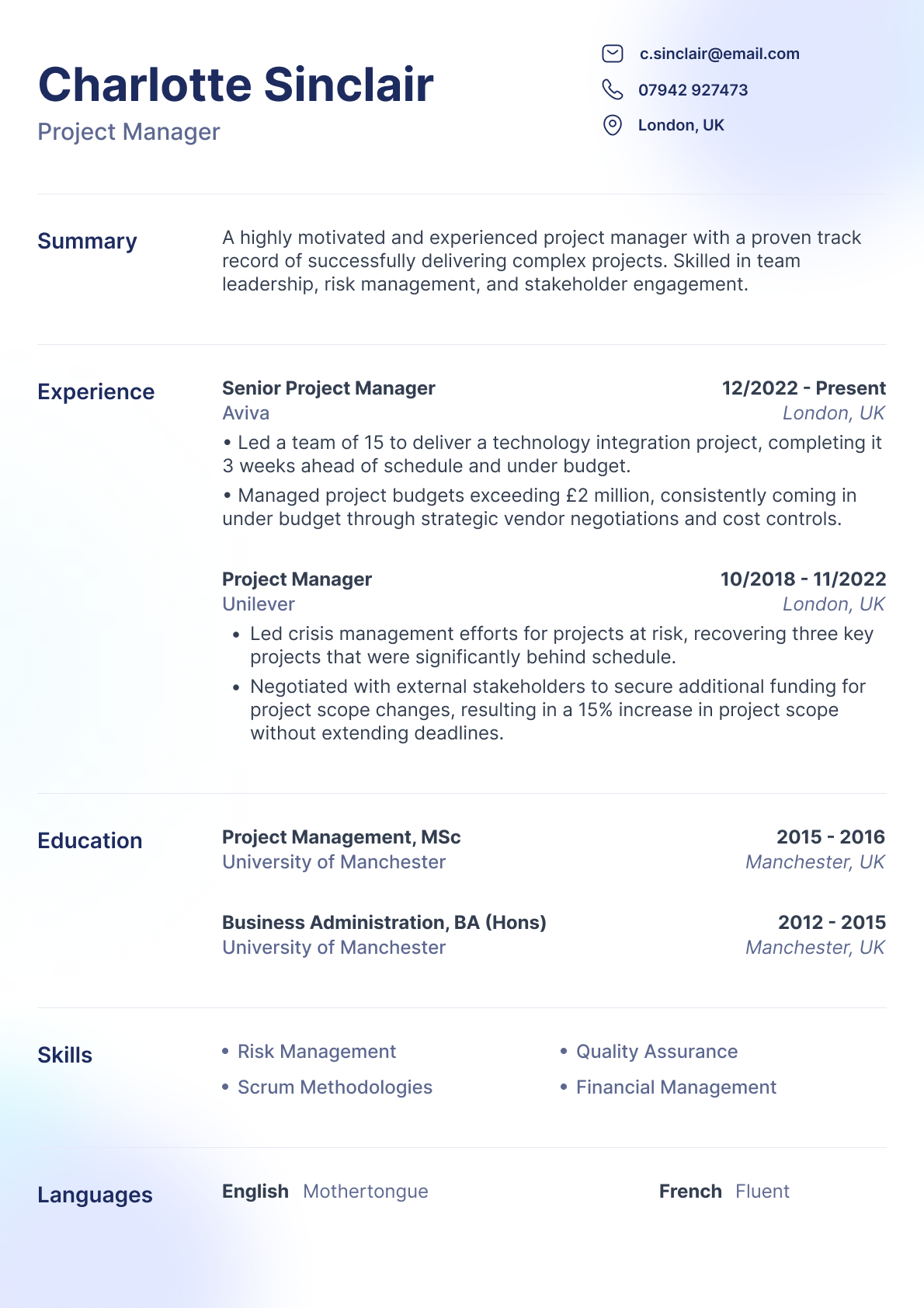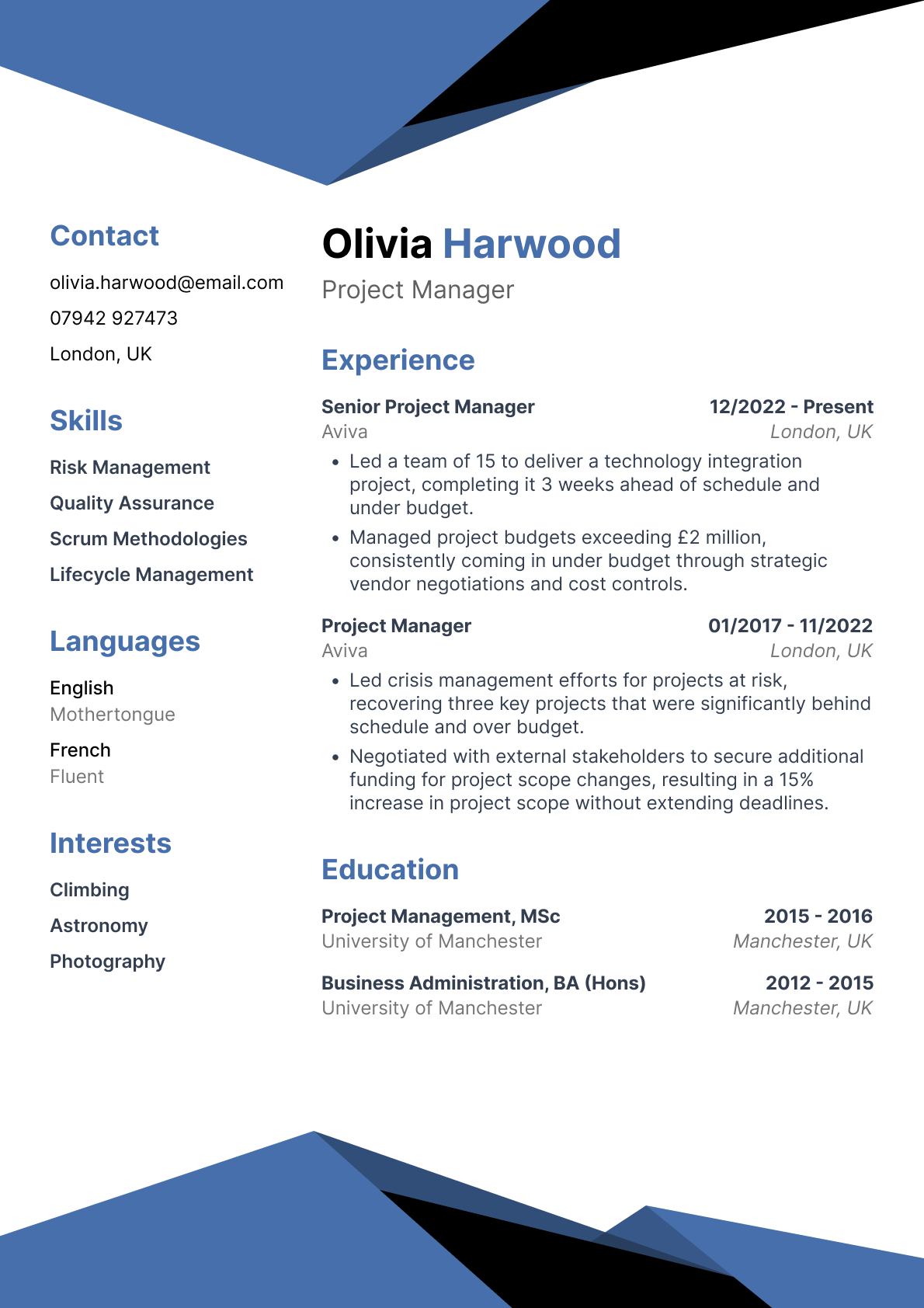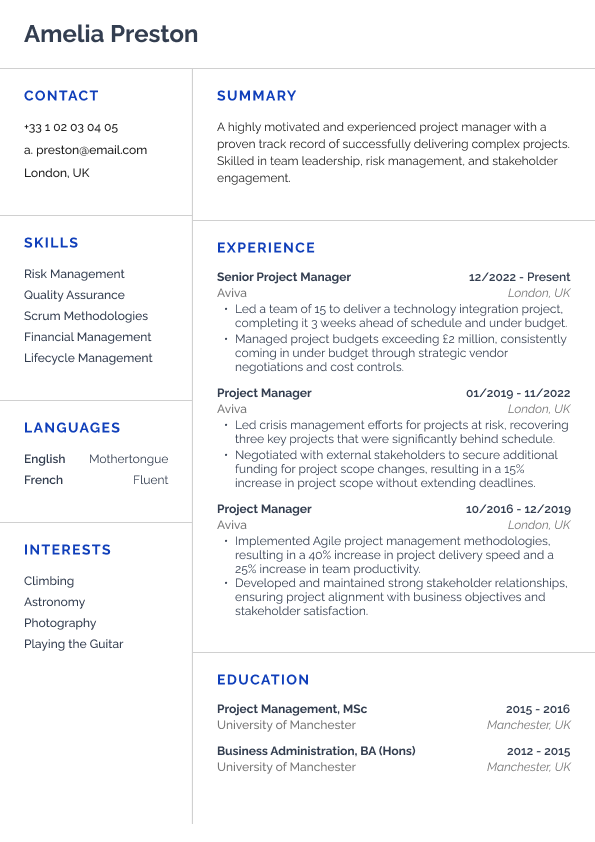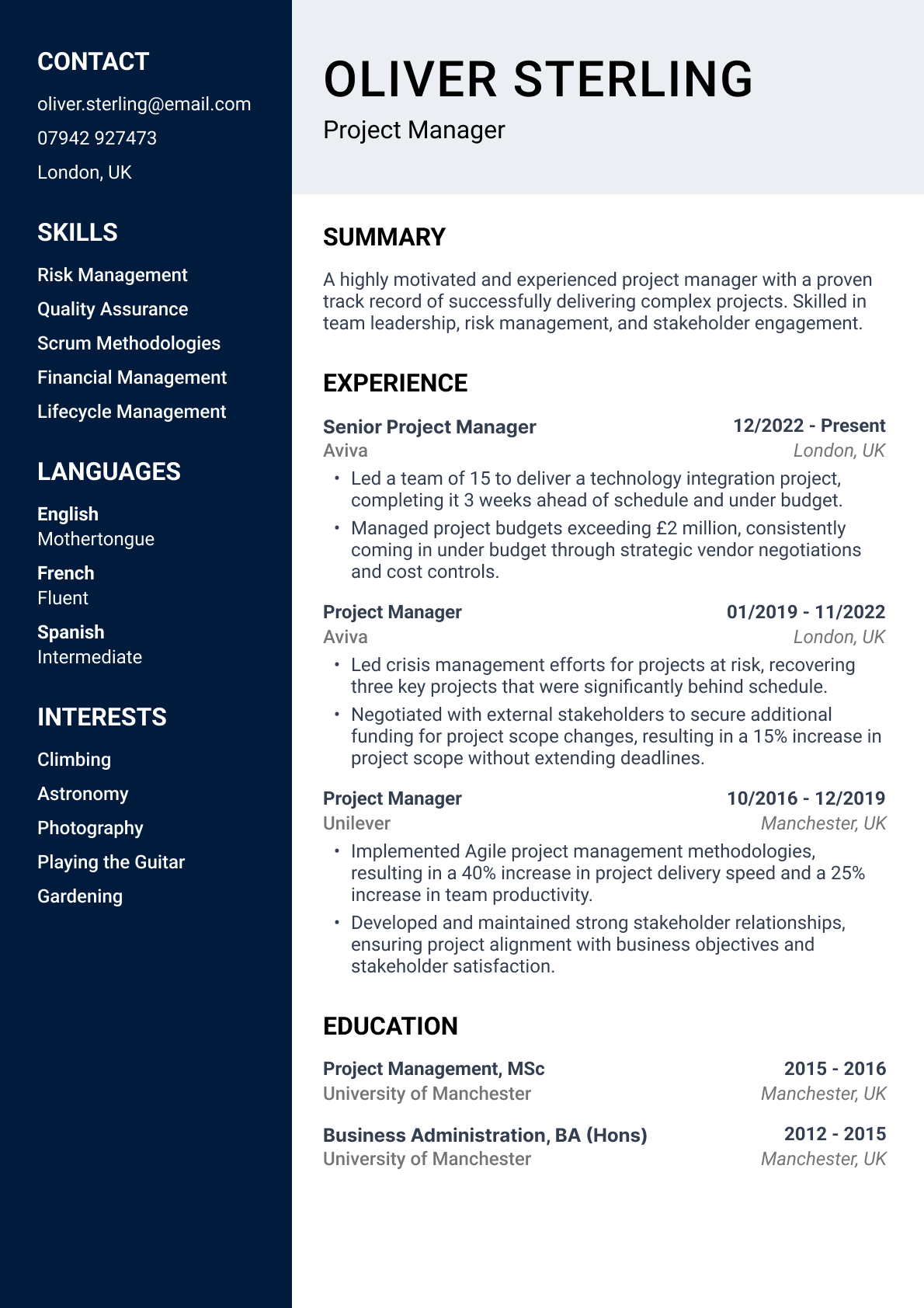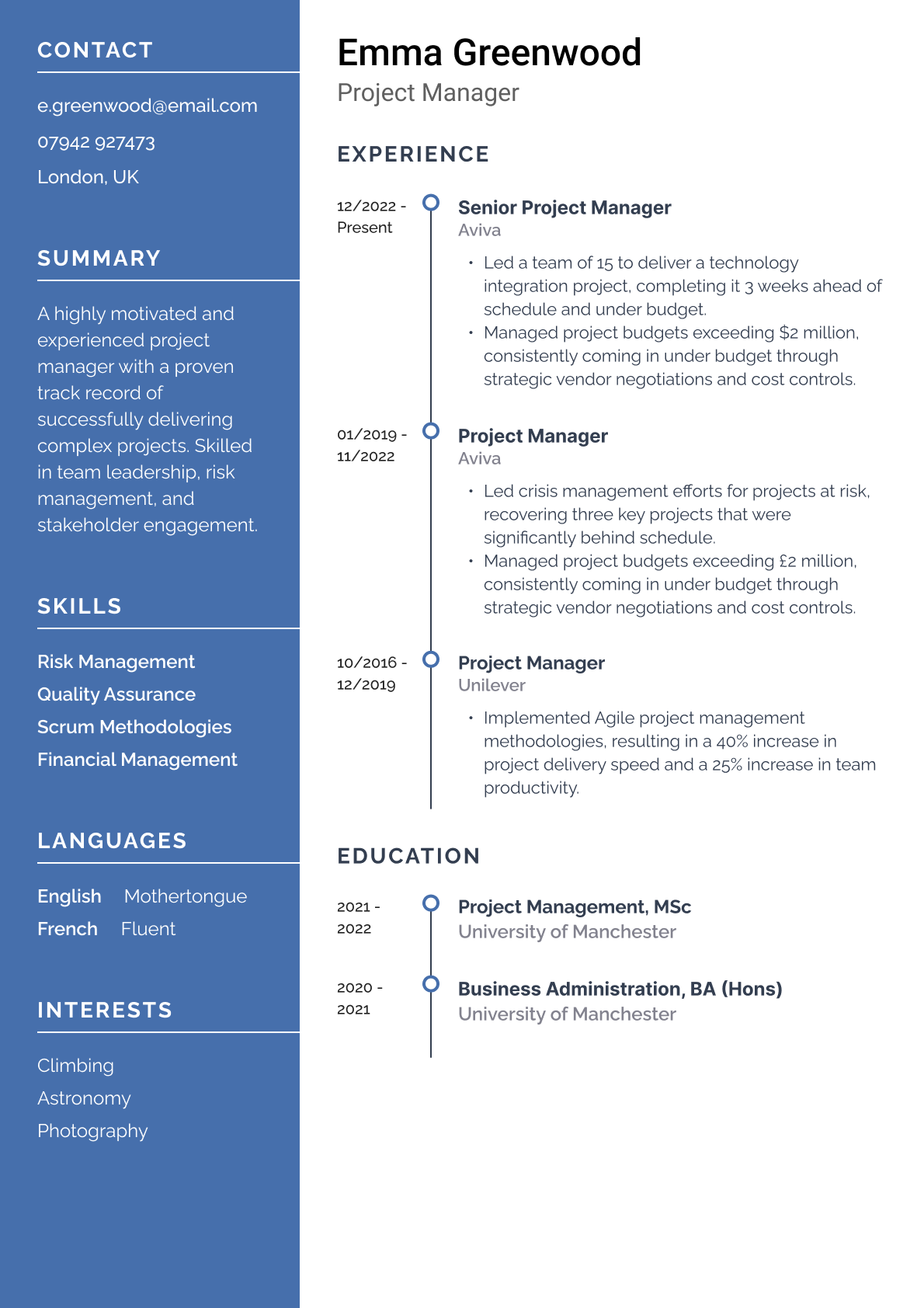CV for beginners
Starting your career or making a shift? Your resume is your first impression—make it count! A well-structured CV highlights your skills, experience, and potential, even if you have little or no work experience. Learn how to present yourself effectively and secure that interview.
Create your CV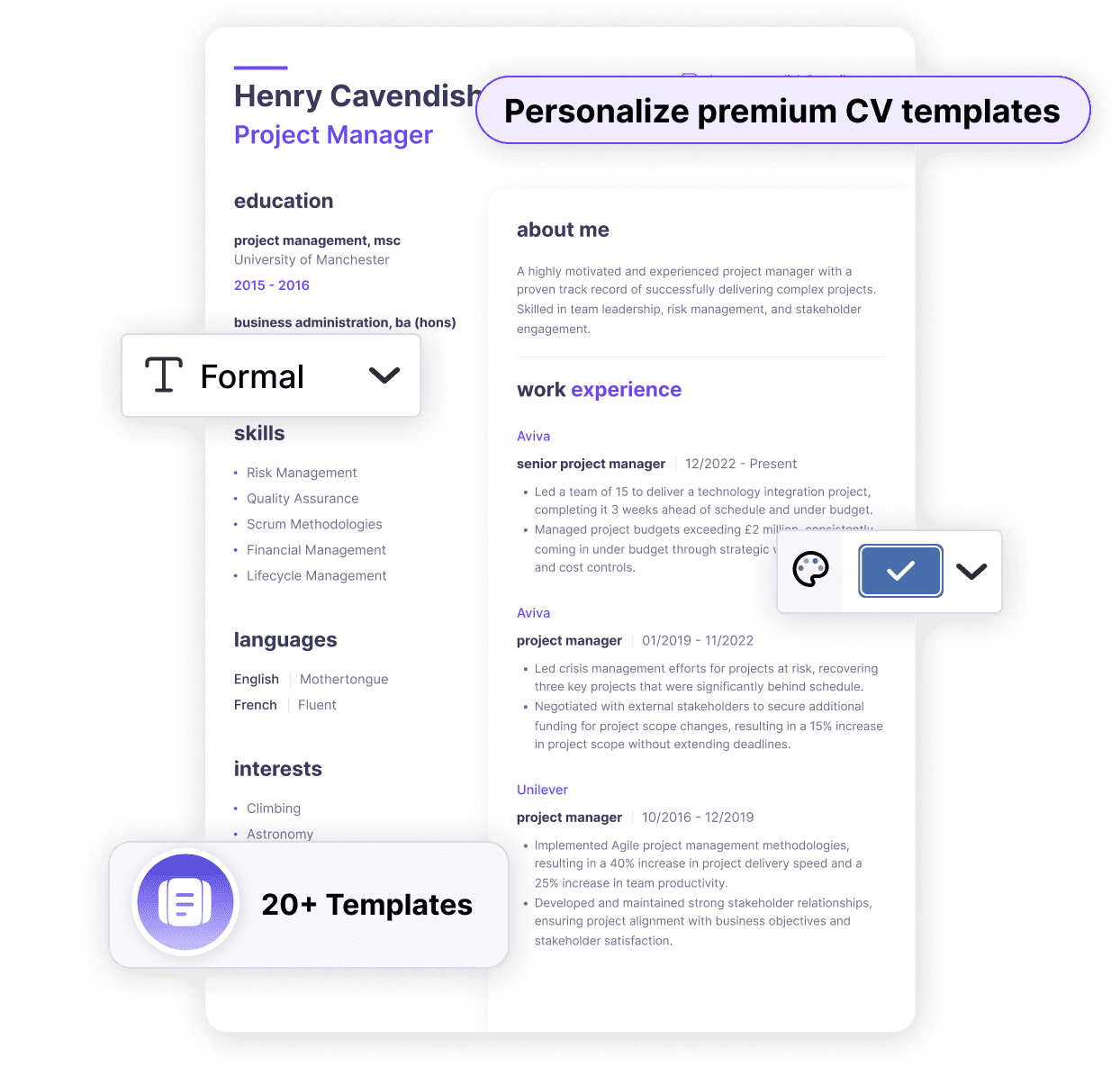
Your resume is more than a list of jobs—it's your personal marketing tool. A strong resume should be clear, concise, and tailored to the job you're applying for. Whether you’re a recent graduate, changing careers, or entering the workforce for the first time, structuring your CV correctly can make all the difference.
Choose a layout that is easy to read
Your resume should be clean, simple, and well-structured. Use clear headings, consistent fonts, and bullet points to make it easy for recruiters to scan quickly. Avoid overly decorative designs that can make your resume difficult to read.

Highlight key skills and achievements
Even if you don’t have much work experience, highlight what makes you a strong candidate. Focus on transferable skills, such as problem-solving, teamwork, or leadership, and back them up with real examples from school, volunteer work, or personal projects.

Write a compelling personal statement
This short paragraph at the top of your resume should summarize who you are, what you bring to the table, and your career goals. Make it specific and engaging to capture the recruiter’s interest right away.

How to write the perfect CV as a beginner
Writing a resume when you have little or no work experience can feel challenging. However, a well-crafted CV can still make a great impression and help you land interviews. The key is to focus on your skills, achievements, and potential. Here’s how to create a strong and professional resume, even as a beginner.
Keep it concise and well-structured : recruiters spend only a few seconds scanning each resume, so it’s crucial to make yours clear, organized, and easy to read.
Stick to one page – As a beginner, you don’t need a long resume. Prioritize relevant information.
Use clear headings and bullet points – This makes it easier for recruiters to skim through your key details.
Choose a professional font – Stick to simple and readable fonts like Arial, Calibri, or Times New Roman.
Focus on skills and achievements : even if you don’t have professional experience, you still have valuable skills. Think about what you’ve learned from school, internships, volunteer work, or personal projects.
Highlight transferable skills – Communication, teamwork, problem-solving, and organization are all valuable to employers.
Use real examples – Instead of saying "good at teamwork," mention a project where you collaborated with others successfully.
Include extracurricular activities – If you were part of a club, sports team, or student organization, mention leadership roles or key contributions.
Tailor your resume to each job : a generic resume won’t stand out. Instead, customize your CV for each application to increase your chances of getting noticed.
Use keywords from the job description – Many companies use Applicant Tracking Systems (ATS) to filter resumes. Including relevant keywords helps your resume get through.
Match your skills with the job requirements – If a job listing mentions "problem-solving" and "teamwork," be sure to emphasize those skills in your CV.
Remove irrelevant information – Only include details that add value to your application.
How to structure your resume for maximum impact : a well-structured resume helps recruiters find important information quickly. Here’s the best format to follow:
Personal Information – Include your full name, phone number, and a professional email address. Avoid casual email addresses.
Professional Summary – A short paragraph at the top of your CV summarizing your skills, career goals, and what makes you a great candidate.
Skills Section – List relevant skills such as communication, problem-solving, leadership, or technical expertise.
Work Experience (if applicable) – If you have formal work experience, list your previous roles and responsibilities. If not, mention internships, volunteer work, or freelance projects.
Education – Include your degree, relevant coursework, or certifications. If you’ve taken online courses related to the job, mention them.
Create the CV that suits you
Freelance, employee or professional writer, benefit from the many online CV templates tailored to your industry sector and job. Select the style which suits you best to make you shine and help you get the dream job.
Best practices and mistakes to avoid
Best practices
Use bullet points for easy readability
Quantify achievements (e.g., "Increased social media engagement by 30%")
Choose a clean, professional font (Arial, Calibri, or Times New Roman)
Common mistakes
Using generic resumes for all job applications
Including too much irrelevant information
Spelling and grammar errors—always proofread before sending
The essentials of writing a strong resume as a beginner
01
Clear and concise formatting
02
A compelling summary
03
Relevant skills & experience
04
Use keywords from the job description
05
Action-oriented language
Frequently asked questions for a beginner’s CV
What should I include in my CV if I have no work experience?
If you lack formal work experience, highlight your education, internships, volunteer work, and personal projects. Focus on transferable skills like teamwork, problem-solving, and leadership, which you may have developed through extracurricular activities or academic work. Emphasize achievements and real-world examples to show your potential.
How long should my CV be?
As a beginner, your CV should be one page. Recruiters spend only a few seconds scanning each resume, so keep it concise and relevant. Avoid unnecessary details like hobbies unless they directly relate to the job. Use bullet points and clear formatting to make it easy to read.
What is the best CV format for a beginner?
A skills-based or hybrid format works best for beginners, as it highlights skills and education rather than work experience. Start with your personal details, followed by a strong summary, key skills, education, and any relevant projects, internships, or volunteer work. This structure ensures that recruiters focus on your abilities rather than a lack of experience.
How can I make my CV stand out to recruiters?
Tailor your CV for each job by using keywords from the job description. Focus on achievements rather than just listing responsibilities, and use strong action verbs like "developed," "led," or "organized." Keep your layout clean, professional, and free of errors. A well-structured, personalized CV will grab recruiters’ attention.
